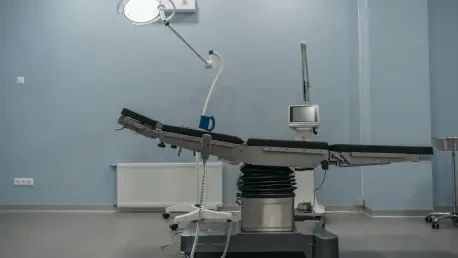The prospect of biomanufacturing in space is accelerating the evolution of healthcare delivery and research in significant ways. From the unique research opportunities aboard the International Space Station (ISS) to the cutting-edge advancements in regenerative medicine, the potential of these ventures promises to revolutionize current medical practices on Earth. The microgravity setting of space offers unparalleled advantages, boosting stem cell research capabilities and improving the formation of tissues that are more complex than what Earth’s laboratories can create. Collaborations among prestigious universities, biotechnology companies, NASA, and innovative hardware developers demonstrate the substantial investments being made in this frontier. Collectively, these efforts are driving the tenets of genomics and biologic therapies into novel therapeutic applications that had once seemed beyond reach.
Microgravity and Biological Advancements
The unique conditions found in space present researchers with opportunities to explore biological phenomena that are not feasible under Earth’s gravitational forces. In particular, microgravity has proven to be a thriving environment for stem cells, enhancing their differentiation and capabilities. Scientists have discovered that diseases can be modeled more accurately in space due to the absence of gravity-related variables, suggesting that current research may unlock insights into pathology and treatment not possible within the confines of conventional laboratories. Consequently, the implications extend beyond theoretical research, directly influencing medical techniques and therapies on Earth. With supportive policies advocating for space-enabled innovations, the rapid expansion of biomedical research in low Earth orbit (LEO) is less of a futuristic notion and more of an emerging reality. Efforts to harness LEO’s conducive environment are unlocking potential applications that will redefine healthcare strategies.
Collaborative Efforts and Future Prospects
The expansive realm of biomanufacturing in space ushers in a new era of cross-industry collaborations aimed at pooling resources for shared goals. From major pharmaceutical giants to emerging biotech startups, there is a strategic shift towards a collaborative infrastructure supporting space-driven research. Notable platforms like the ISS National Lab play a key role in foundational progress across areas like organoid disease modeling and tissue engineering, turning possibilities into actionable outcomes. These advances highlight the creation of a sustainable market for therapies that enhance human life, paving the way for breakthroughs in regenerative medicine and biologic therapy previously constrained by Earth’s limitations. As opportunities widen, the ongoing success of these partnerships hinges on coordinated investments and consistently supportive policies. The exploration of space-based biotechnology holds the potential to revolutionize the principles of health innovation on Earth. Reflecting this paradigm shift, refining techniques and expanding capabilities translate these advancements back to Earth, potentially reducing costs and increasing therapy access.









